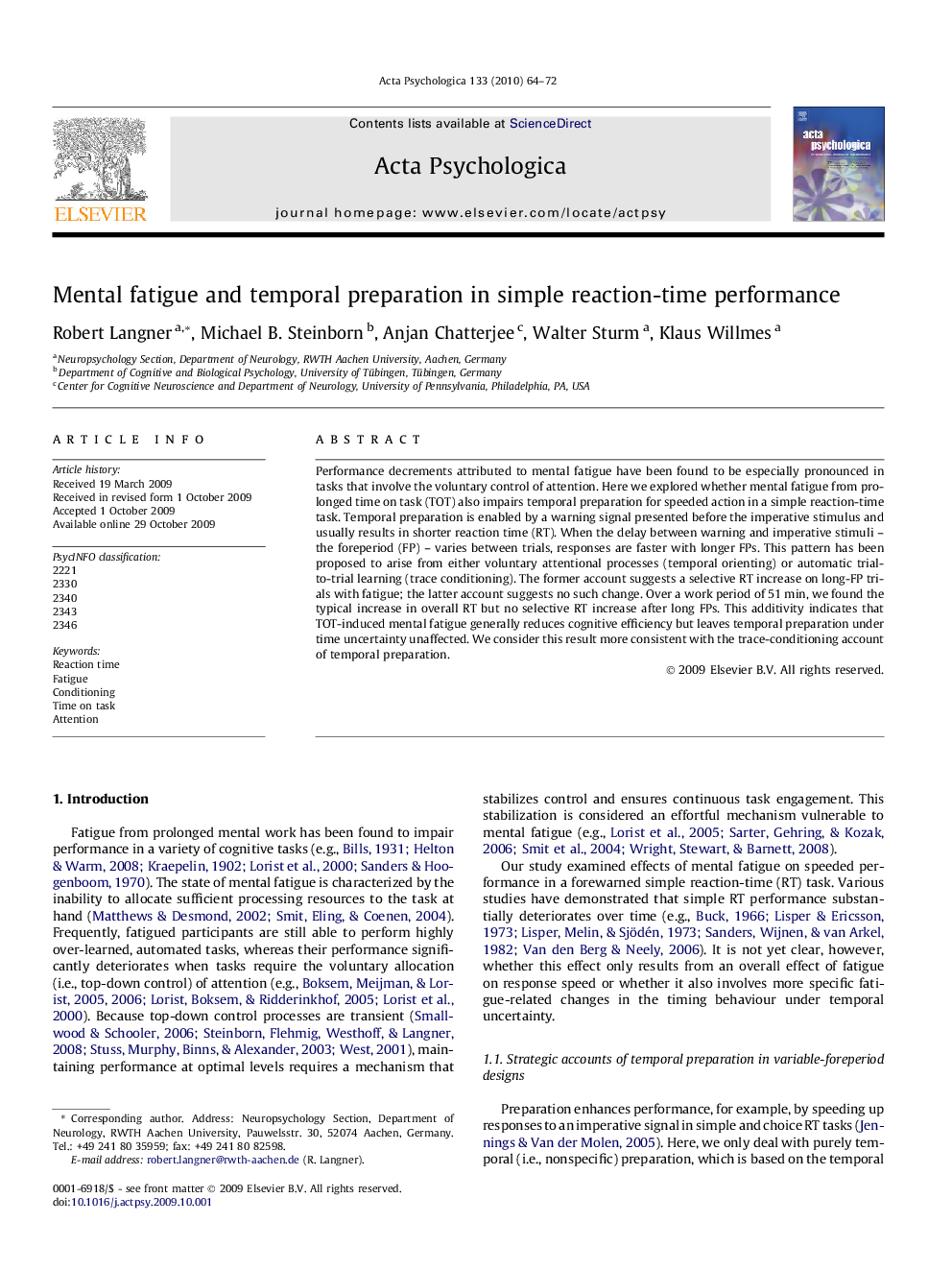| Article ID | Journal | Published Year | Pages | File Type |
|---|---|---|---|---|
| 920207 | Acta Psychologica | 2010 | 9 Pages |
Performance decrements attributed to mental fatigue have been found to be especially pronounced in tasks that involve the voluntary control of attention. Here we explored whether mental fatigue from prolonged time on task (TOT) also impairs temporal preparation for speeded action in a simple reaction-time task. Temporal preparation is enabled by a warning signal presented before the imperative stimulus and usually results in shorter reaction time (RT). When the delay between warning and imperative stimuli – the foreperiod (FP) – varies between trials, responses are faster with longer FPs. This pattern has been proposed to arise from either voluntary attentional processes (temporal orienting) or automatic trial-to-trial learning (trace conditioning). The former account suggests a selective RT increase on long-FP trials with fatigue; the latter account suggests no such change. Over a work period of 51 min, we found the typical increase in overall RT but no selective RT increase after long FPs. This additivity indicates that TOT-induced mental fatigue generally reduces cognitive efficiency but leaves temporal preparation under time uncertainty unaffected. We consider this result more consistent with the trace-conditioning account of temporal preparation.
